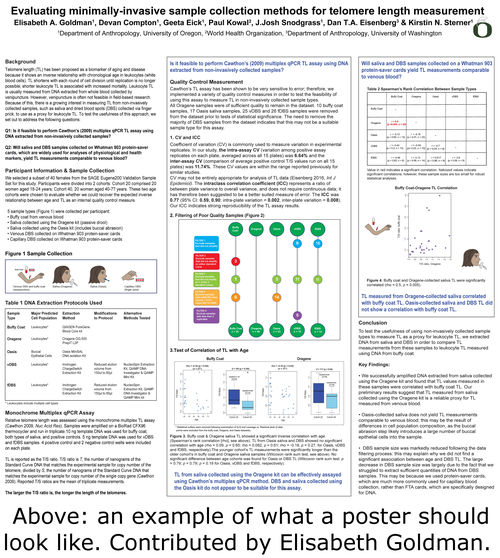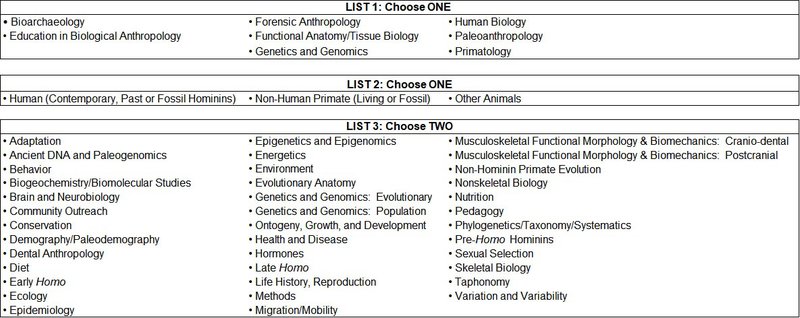
The following provides information about submitting a competitive abstract. Please read it when preparing your submission. Note that we have new keywords this year! A careful selection of keywords on your part will enable your abstracts to be appropriately reviewed and help the Advance Program Committee to put together a coherent and exciting program.
Contributed research presentations convey leading research results to our peers. There is no limit on the number of abstracts that an individual may co-author; however, each person may be the first author of only one abstract. And every abstract must have a unique author (and e-mail address) registered for the meetings.
 Poster and Podium Presentations: The AAPA meetings offer the opportunity to deliver presentations in either a poster or a podium format. We maintain a limit of four simultaneous podium sessions (including invited symposia). Authors are asked to state their format preference as part of their online abstract submission. However, we cannot guarantee your preferences can always be met. Recent meetings have had a ratio of 3:1 posters to podium presentations. Reviewer advice and programmatic requirements may result in the moving of some abstracts from podium to poster OR from poster to podium format. Final decisions regarding presentation type and abstract acceptance/rejection rest with the Program Chair.
Poster and Podium Presentations: The AAPA meetings offer the opportunity to deliver presentations in either a poster or a podium format. We maintain a limit of four simultaneous podium sessions (including invited symposia). Authors are asked to state their format preference as part of their online abstract submission. However, we cannot guarantee your preferences can always be met. Recent meetings have had a ratio of 3:1 posters to podium presentations. Reviewer advice and programmatic requirements may result in the moving of some abstracts from podium to poster OR from poster to podium format. Final decisions regarding presentation type and abstract acceptance/rejection rest with the Program Chair.
Abstract Preparation: Prepare your abstract carefully. Abstracts are reviewed by two members of the Program Committee who rank them on a scale of 1 to 3 (high priority, low priority, reject). If the abstract is acceptable they also recommend whether it should be a poster or podium presentation. To be ranked highly and accepted, the abstract must contain a clear statement of purpose, provide essential new information, including results of the investigation and conclusion(s), and address the importance of the findings for anthropology. We are aware that many organizations accept abstracts without results, but the AAPA does not. To be accepted, an abstract must include clear evidence that data have been analyzed and results have been obtained. Occasionally it is appropriate for abstracts to be submitted which do not include results but which are synthetic in nature. In general, however, abstracts must present new results. Abstracts cannot exceed 250 words.
How to avoid the rejection of your abstract: Ways to land an abstract in purgatory
A Note on Self-Plagiarism: Abstracts must not duplicate previously published abstracts. Abstracts that are substantially the same as published abstracts cannot be accepted as copyright may be held elsewhere.

Online submission:

Format preference (poster/podium/either) is indicated at the time of submission. We cannot guarantee you will be assigned your first preference. Our meetings feature many more posters than podium presentations.
Interested in chairing a session? The chair is responsible for arriving in advance of the session to assist with uploading papers, setting up posters, and generally troubleshooting. A podium session chair introduces talks and ensures that all oral presentations stay within the time limit and that the session runs neither fast nor slow. This requires a certain degree of assertiveness. If you do not think you can stand up to a prominent member of the association who continues to speak after his/her allotted time, do not volunteer to be a session Chair.
Technical Notes: The online system will e-mail you a confirmation when you have successfully submitted your abstract. In some cases, especially gmail addresses and university email run by Google, this email may be filtered as spam. If you do not receive your confirmation email within 1 hour of submission, please e-mail [email protected].
By the end of December 2018, abstract decisions will be distributed via e-mail to the registered author. Your original submission confirmation email also includes a link to your abstract status page that may be used to check abstract decisions. Updates to that page will be available in late December.
The Review Process: The Program Committee includes scholars from a range of fields within our discipline. Each abstract is read by at least two members of the Program Committee with appropriate expertise. Each reviewer ranks the abstracts on a scale of 1 to 3 (high priority, low priority, reject) and recommends the most appropriate format (poster/podium) for the presentation. If two members recommend rejection, the abstract is reviewed by another member of the committee and by the Program Chair. The AAPA retains the right of rejection of any abstract. Decisions are final.
QUESTIONS? email Steve Leigh at [email protected].
Copyright © 2025 American Association of Biological Anthropologists.
Site programming and administration: Ed Hagen, Department of Anthropology, Washington State University